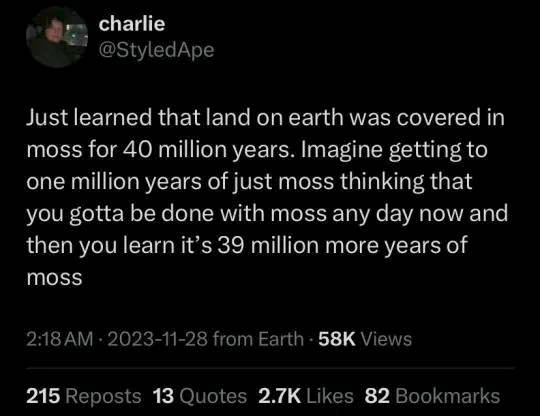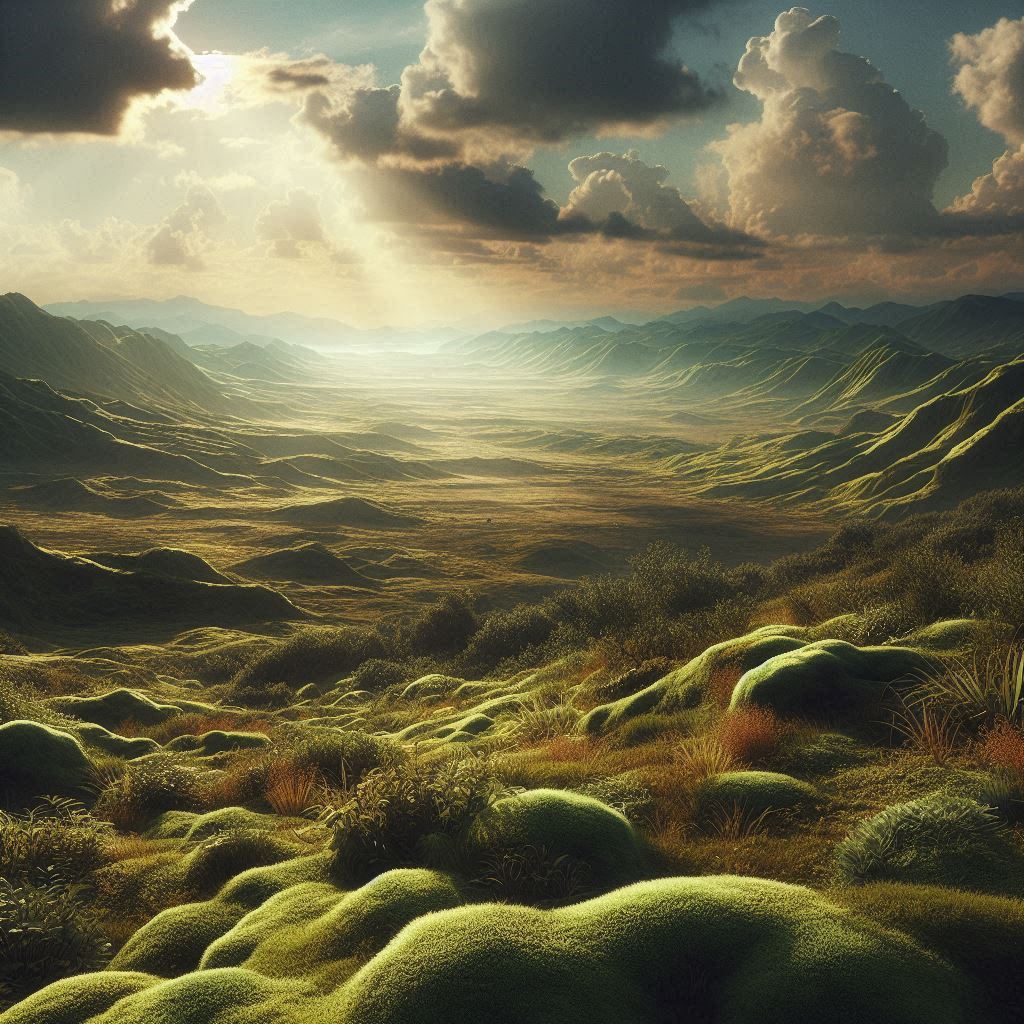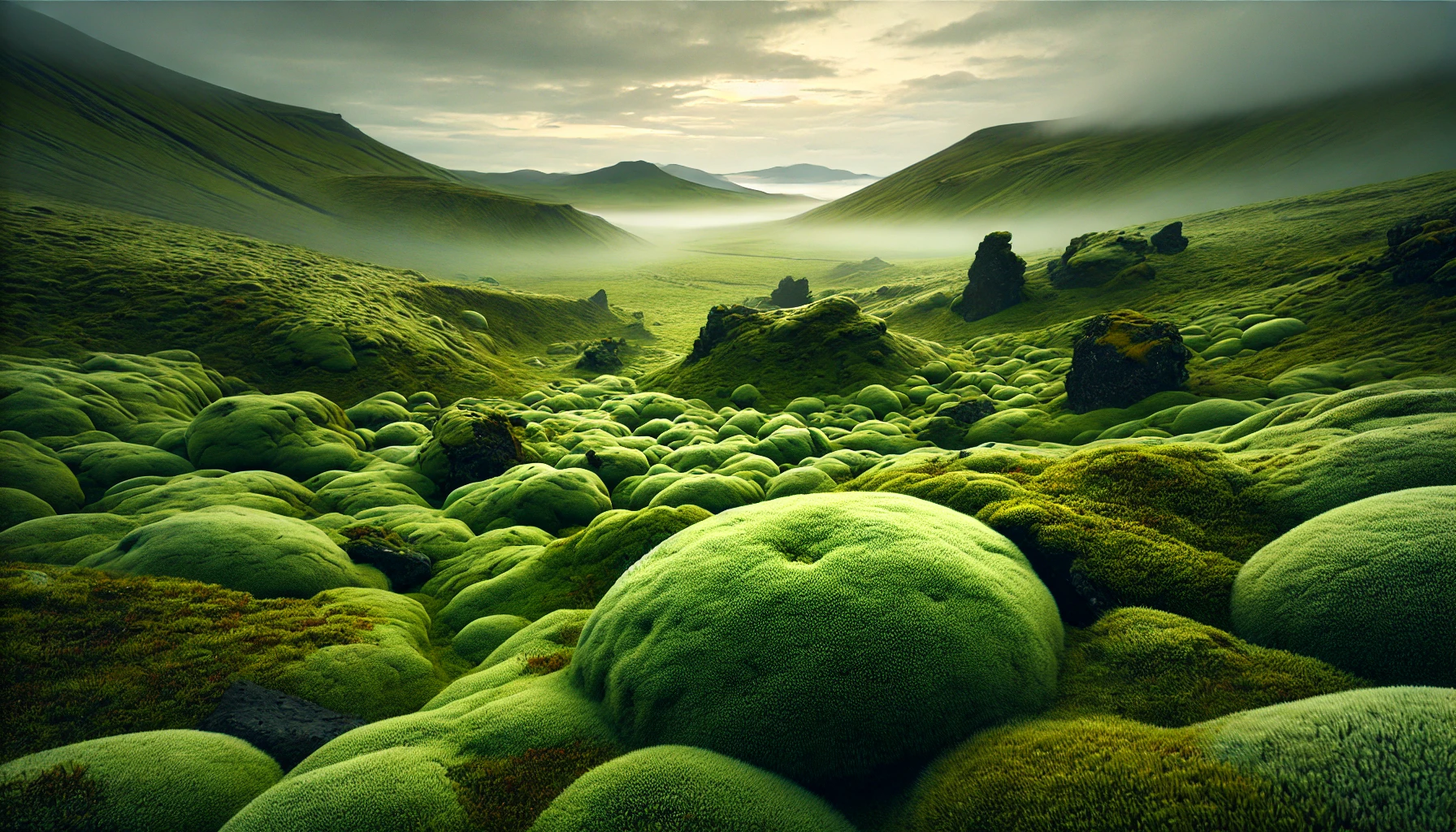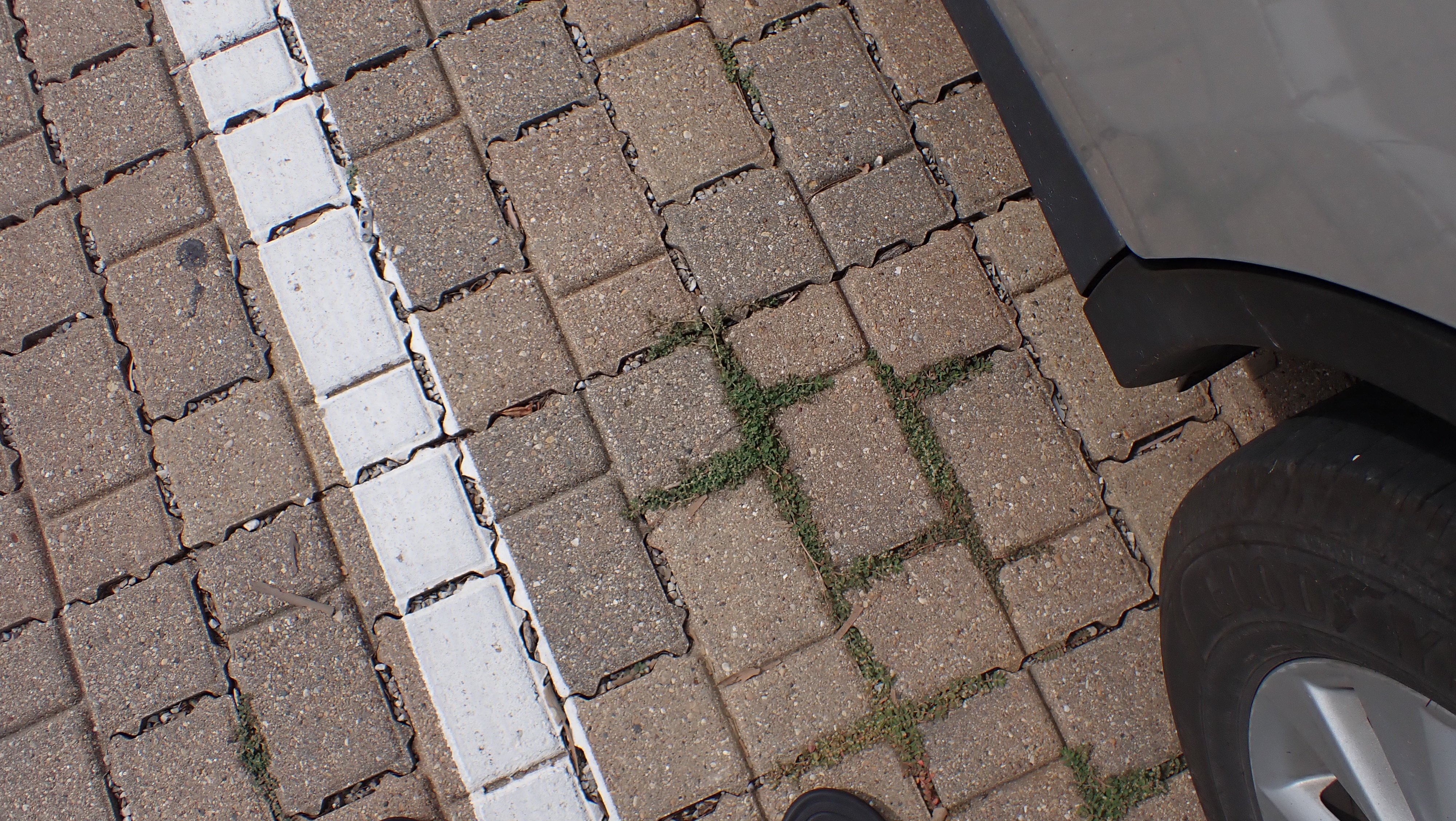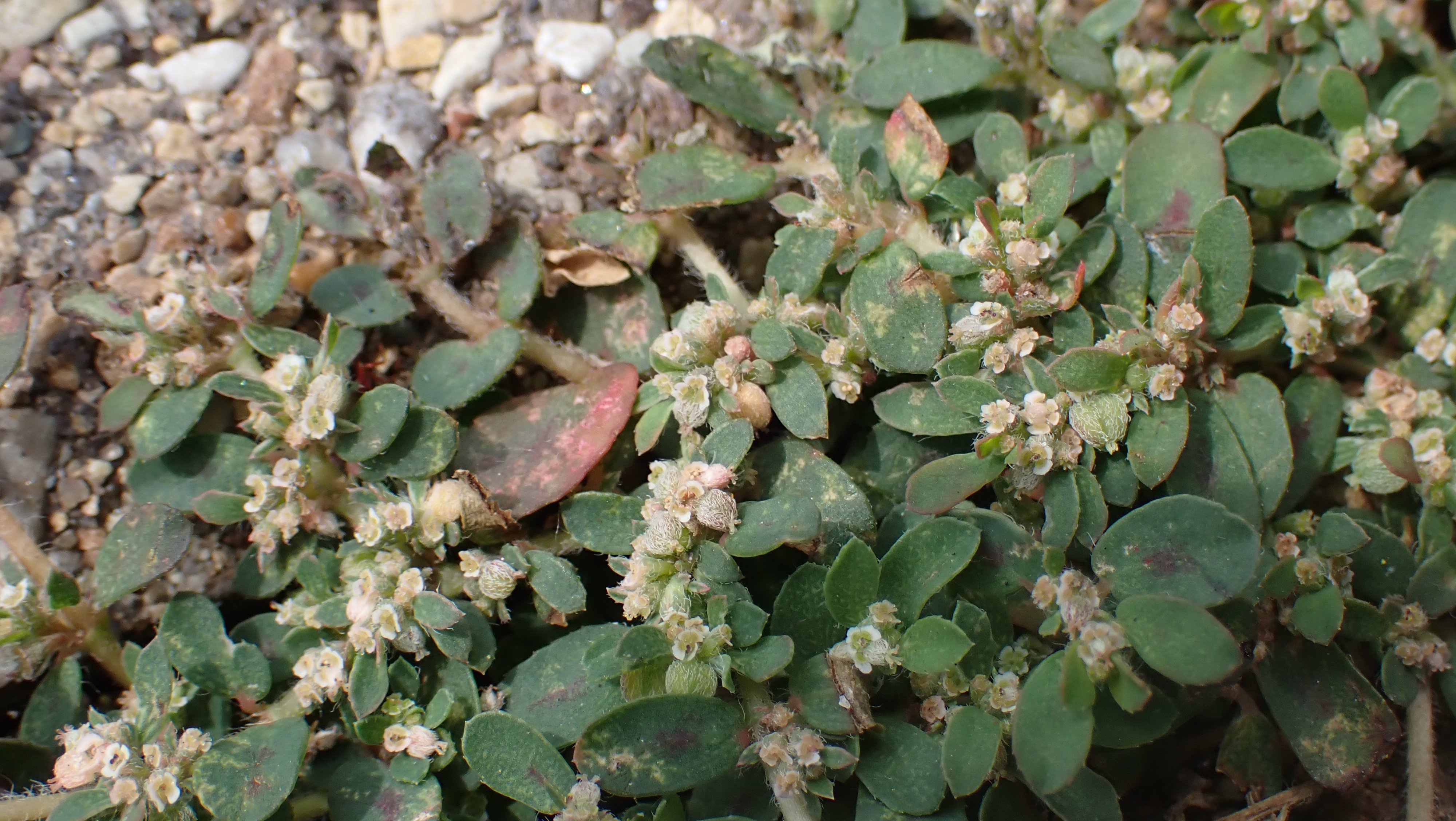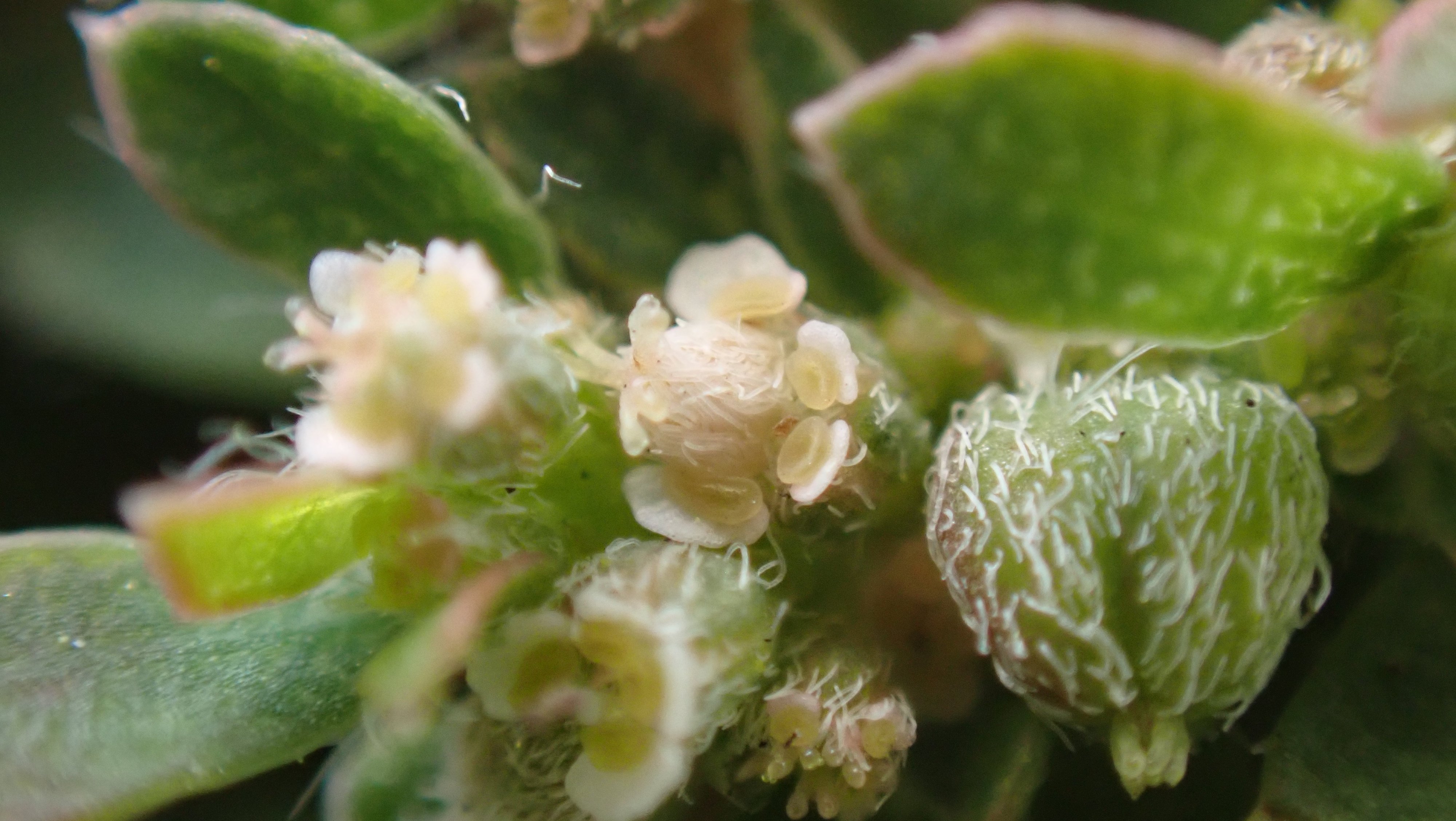It always staggers me when I remember that for roughly sixty million years during the Carboniferous Period, there were trees but no microorganisms capable of decomposing them.
Just sixty million years of branches falling off and trees falling down and... just sitting there on the ground, not rotting at all.

